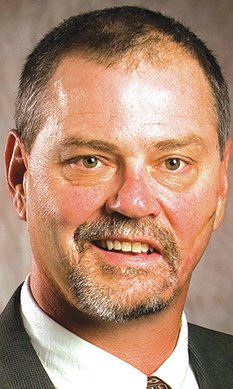FAYETTEVILLE -- Rogers City Council members and Mayor Greg Hines attended a closed-door settlement conference with a judge Friday morning related to a federal civil rights lawsuit filed against them by City Attorney Ben Lipscomb.
Lipscomb, the elected city attorney, filed a federal lawsuit in November against the mayor and aldermen claiming his Constitutional rights were violated when the council transferred most of his duties to a staff attorney who answers to the mayor.
Legal Lingo
Settlement Conference
A meeting between opposing parties to a lawsuit at which the parties attempt to reach a mutually agreeable resolution of their dispute without having to proceed to a trial. The parties and their attorneys meet with a settlement judge who hears both sides and tries to help them reach a compromise. Usually the judge cannot make any decisions regarding the outcome, but will listen to each side, giving their critique and advising what they would be likely to decide in court.
Source: uslegal.com
The Northwest Arkansas Democrat-Gazette formally objected to the settlement conference being closed, based on the open meetings clause of the Arkansas Freedom of Information Act.
U.S. Magistrate Judge Erin Setser closed the conference, noting it has been standard practice in federal courts for settlement conferences to be closed to the public so the sides can evaluate their cases with the court, make concessions and have productive discussions.
"I certainly mean no offense, and I take no pleasure in doing that," Setser said. "We're really just having discussions, very open, frank and candid discussions."
Setser filed an order closing the conference and, along with it, a memorandum from the Municipal League Defense Program.
The memorandum says communications made during dispute resolution are confidential and not subject to disclosure under state law and the Arkansas Freedom of Information Act yields to that law.
"And, the Arkansas FOIA contains no language indicating that settlement conferences are 'public meetings,'" according to the memo. "In fact, the Arkansas Attorney General has opined that a settlement conference is not a 'meeting' for purposes of the FOIA."
Further, the 8th U.S. Circuit Court of Appeals has found in similar cases state law cannot trump federal law, and a state law prohibition isn't binding on a federal court, according to the memo.
"Thus, even if an argument could be made that Arkansas FOIA law mandates a settlement conference be open to the public, the Supremacy Clause allows the district court to close the conference, regardless," according to the memo.
Setser said no official actions could be taken during the session and any proposals for settling the lawsuit will be taken up by city officials during an open council meeting.
John Tull, an attorney who represents the Arkansas Press Association, said FOIA cases are seldom as clear as they are made out to be.
"I agree that the Supremacy Clause grants federal courts authority to hold that settlement conferences are to be in private," Tull said. "I don't agree with her interpretation of Arkansas law."
Tull said he believes the state statutes cited refer to confidentiality rather than open meetings and any exemptions to the open meetings requirements must cross-reference the FOIA.
"Confidentiality is different than saying a meeting is not subject to FOIA," Tull said.
Tull said he'd be more comfortable if the judge's order limited the board to discussing only the lawsuit at hand and nothing else.
Lipscomb, Hines and council members Clay Kendall, Sam Jeffery, Marge Wolf, Betsy Reithemeyer, Andrew Hatfield and Buddy Wright attended the settlement conference.
Last year, Hines and Rogers council members opted not to attend a settlement conference in the case of Jerry Hudlow, the city treasurer who Hines fired, despite an order to attend by Magistrate Judge James Marschewski. A jury eventually ruled Hudlow was wrongly fired and awarded him $630,000. A judge ordered him reinstated. Hudlow now works for Lowell.
Tension between Lipscomb and Hines escalated when Lipscomb used his city identification to gain entry to a VIP tent at the Walmart Arkansas Music Pavilion last summer. A Springdale police officer said Lipscomb impersonated a law enforcement officer. A special prosecutor declined to file criminal charges against Lipscomb.
Lipscomb and Chris Griffin, then a deputy city attorney, also had conflicts. Hines contends Lipscomb suggested Griffin be made city staff attorney and many duties assigned to Lipscomb be transferred to Griffin. Aldermen created the staff attorney position and transferred Lipscomb's duties at their late September meeting. Three aldermen signed affidavits saying Lipscomb suggested the changes. Hines said he saw the change as a way to move the city forward.
The city's water and sewer board then opted to no longer use Lipscomb's services and Benton County Prosecutor Nathan Smith declined to certify Lipscomb to continue prosecuting cases in Rogers District Court. The prosecution duties were transferred to Bonnie Bridges, a former assistant city attorney who now also reports to the mayor.
Lipscomb contends Hines had the ordinance prepared to take away his duties then made an adjustment to the city's budget to take away his staff.
Brian Ferguson and Ellen Turner first filed to intervene in the case Dec. 29, claiming Lipscomb isn't qualified for office because he lives near Beaver Lake and isn't a Rogers resident.
They amended their complaint to have the declared office vacant. The amended motion claims Lipscomb's term as city attorney expired Dec. 31, and they want an injunction prohibiting him from continuing in office. Continuing to pay Lipscomb is an illegal exaction of taxpayer's money, they claim.
NW News on 01/24/2015

